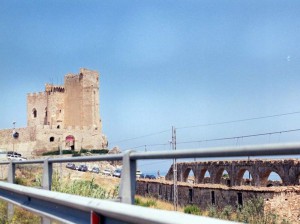I was tempted when glimpsing into the inspiration of the Seven Angels to put all of it differently. Then I understood that in order to read my own inspiration I had to read a bit of history of each city in order to read the inspiration of John.

This brings us to the Mindset of Science and Atheism or Angel of Humanism.
Sardis was an exceptional city in Asia Minor. Its history is long and rich, it is varied and in a sense it is one of the most interesting of all metropolises of the Ancient times around the Mediterranean.
We see that the city is older than the Greek or Hellenic period and that it is particularly influential in the history of money or currency.
Sardis was an important megacity of the Persian Empire. The Royal Road from Persepolis ended at the city and we can see from history that it had representatives of all aspects of human culture and influence within its walls and in the vicinity.
It is interesting to note that it seems that the Angel of the Judaic mindset was present there also, and that the Hebrew population in Sardis was unique. Also that entire Asia Minor – and modern Turky – has interesting Judaic/Hebraic relation.
Almost all the empires who ruled the western part of the Turkish peninsula used Sardis as a political center. It was the seat of bureaucracy and directorates fulfilling the needs of lawful enforcement of the given rulers or states at any given time. It is interesting to note what kind of mindset this evaluated into.
When a particular place becomes a seat of power it will propagate onto more or less every mindset within the place. Here we see the middle layer of every sate; bureaucracy and science. Those two mindsets are the core of all successful empires and they rely on their intellect and their approach to solving business or problems with pragmatism and ingenuity.
These mindsets do not bother themselves with faith, insight, ethics and so forth; but with definitions of methods and rules of successful implementations.
Here we see the first true metallurgy or physics at work, since the ancient Khemit or Egypt. We don’t see here the physics of erecting Pyramids or Ionian columns but separating gold from silver and establishing currency.
That’s the mindset that created “mind over matter, who needs more than lip service to deities, if they exist anyway”. The human being defines his own enlightenment, devises his own empowerment and clearly decides for himself the difference between Good and Evil.
{3:1} And unto the angel of the church in Sardis write; These things says he that has the seven Spirits of God, and the seven stars; I know thy works, that thou hast a name that thou livest, and art dead. {3:2} Be watchful, and strengthen the things which remain, that are ready to die: for I have not found thy works perfect before God. {3:3} Remember therefore how thou hast received and heard, and hold fast, and repent. If therefore thou shalt not watch, I will come on thee as a thief, and thou shalt not know what hour I will come upon thee. {3:4} Thou hast a few names even in Sardis which have not defiled their garments; and they shall walk with me in white: for they are worthy. {3:5} He that overcometh, the same shall be clothed in white raiment; and I will not blot out his name out of the book of life, but I will confess his name before my Father, and before his angels. {3:6} He that hath an ear, let him hear what the Spirit saith unto the churches.
Here we have birth of the second science after philosophy; mathematics and the functional or defined worldview. We enter the dawn of the humanist and sow the seeds of the forest of ideals.
Man becomes God to himself and leaves the path of the whole; for to him if you cannot define that the sum of the parts are greater than the calculated sum of the parts then it is outside the view.
We are also reminded once more of the Thief in the Night, as often when people of intellect debate and grow strong in their intellect, science, perceived wisdom and particularly their Ego, they begin to close off from the creative facility of inspiration.
What is becoming more and more interesting when we begin to define the Angels are two areas.
Most people when they read or hear the sentence “message to the angels of seven churches” hear it as “message to seven churches” when actually it is a message to “seven eternal angels responsible for seven congregations or gatherings of minds”.
Second we begin to see that the Archangel who inspired the messages was glimpsing further down the road than hitherto these messages have been deciphered; and perhaps I’m deciphering them the wrong way?
This is the sixth article about the Seven Churches or Seven Angels of the Apocalypse
